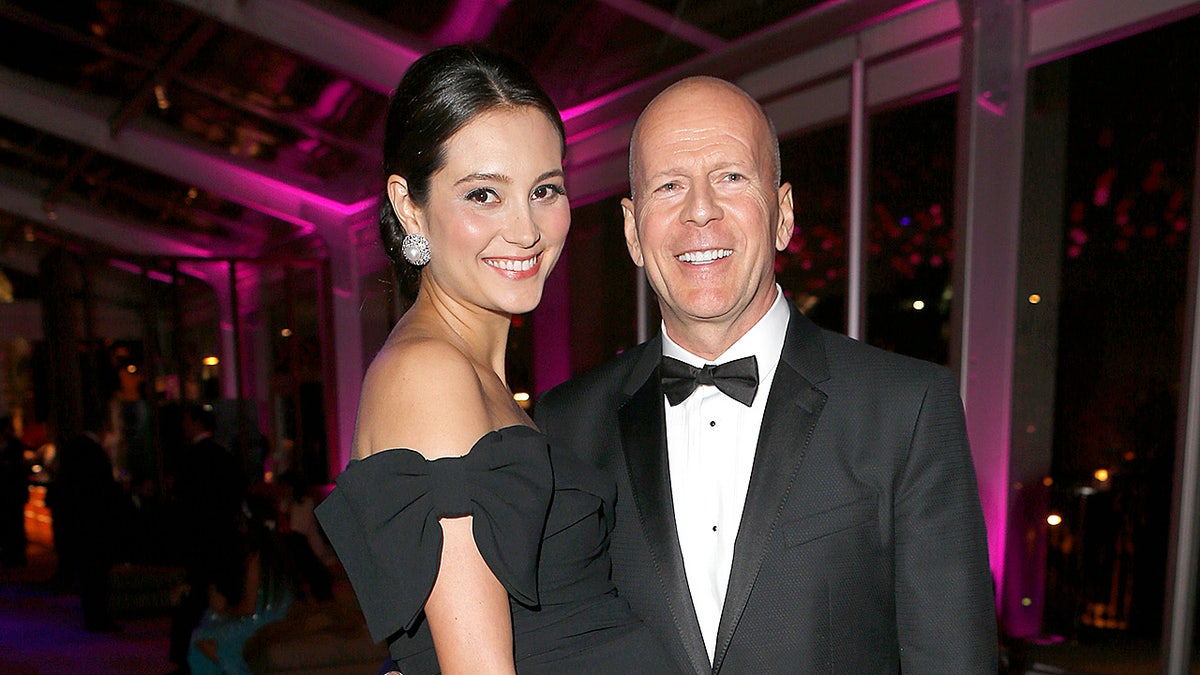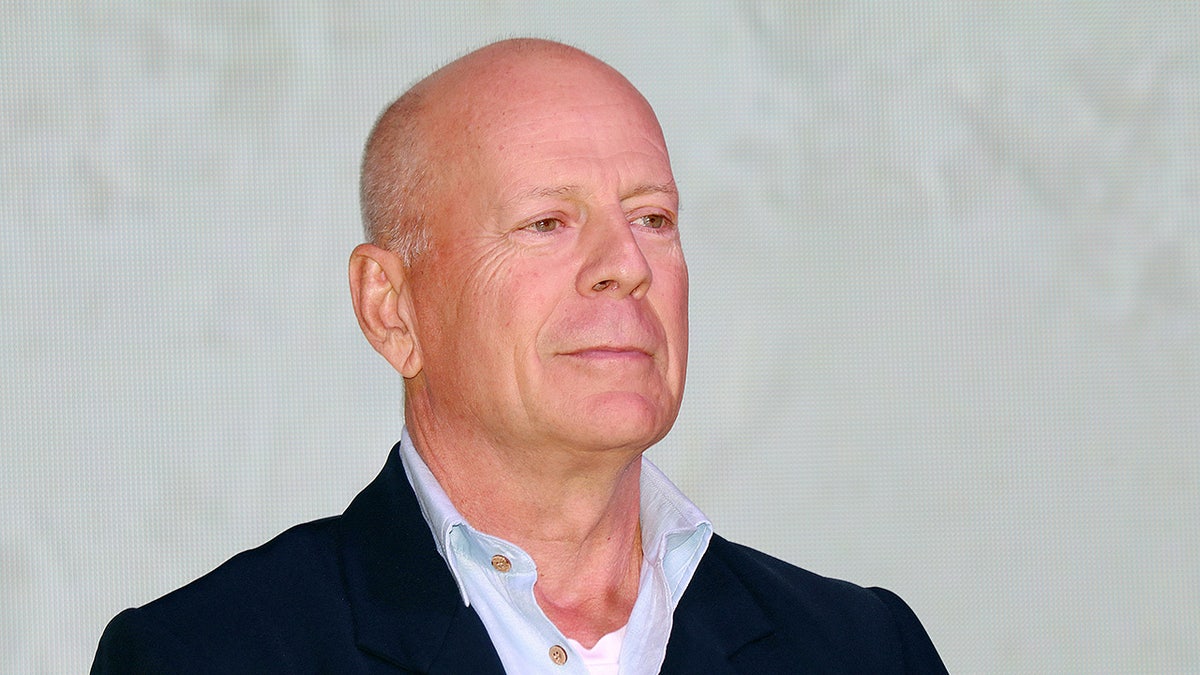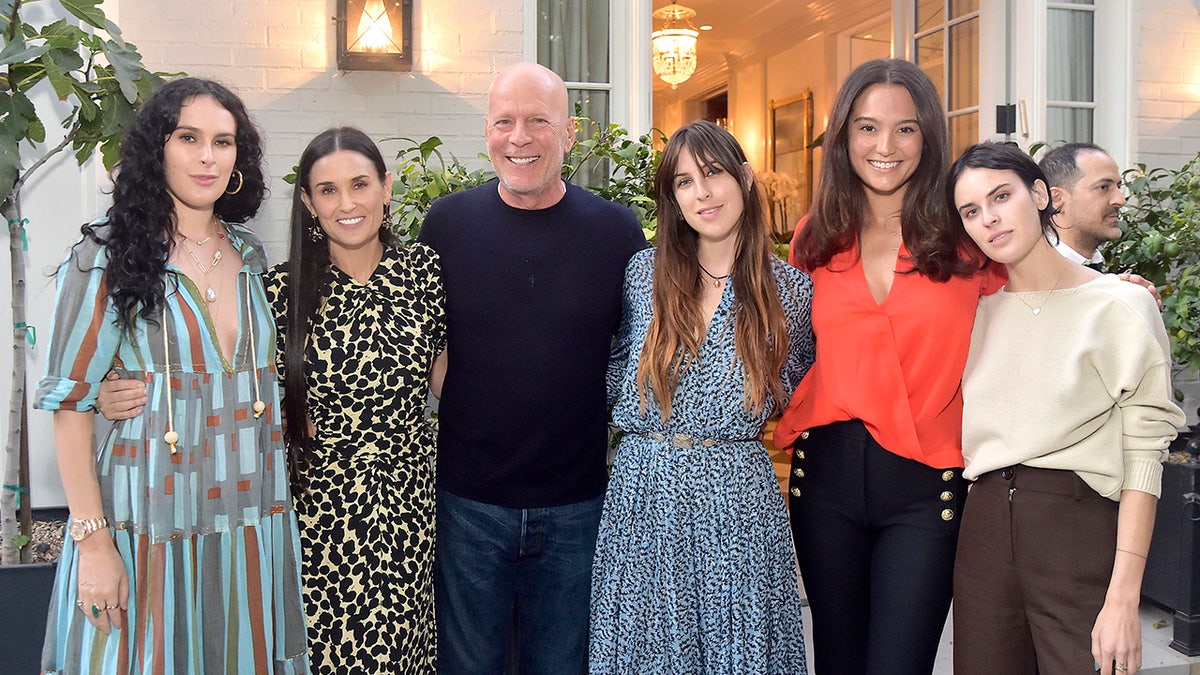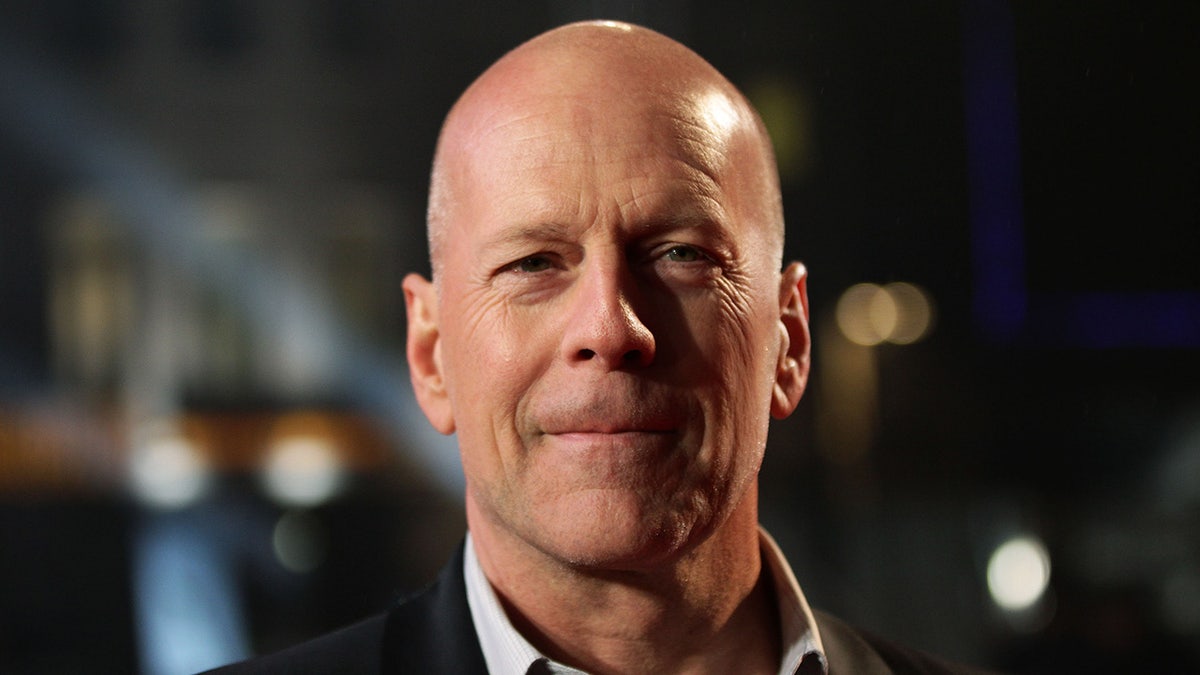

Emma Heming Willis says what’s best for her husband Bruce Willis’ care is not up for debate.
Like many caregivers, the mother of two has been forced to make tough choices for her family in recent years. But none has been as difficult as the decision to move Willis, 70, into a separate home amid his battle with frontotemporal dementia (FTD) — a move that sparked a debate on social media.
The former model has written a new book, "The Unexpected Journey: Finding Strength, Hope, and Yourself on the Caregiving Path." It’s centered on her personal experience as a caregiver for the star. It also serves as a roadmap for new caregivers and their families.
BRUCE WILLIS' WIFE THOUGHT 'DIE HARD' ROLE WAS TO BLAME WHEN DEMENTIA SIGNS SURFACED

Bruce Willis and his wife Emma Heming Willis are seen here at the "Glass" New York Premiere at SVA Theater on January 15, 2019. The actor's family announced he was diagnosed with FTD in 2023. (Jamie McCarthy/Getty Images)
"Sometimes [your loved one’s] needs become more than you are equipped for," Heming Willis told Fox News Digital. "I think that if someone is not living in your home and doing what you’re doing 24/7, they don’t get a say on it. And if they are living with you, then they do get a say. But I don’t think it’s up for debate, just because someone’s care plan looks different from someone else’s."
"I wanted to bring this to light because I just feel there’s so much stigma around this conversation," said the 47-year-old. "You can imagine the judgment and the criticism, which I knew was going to land on my lap."
WATCH: BRUCE WILLIS DIAGNOSED WITH FRONTOTEMPORAL DEMENTIA
In 2022, Willis’ family announced he had been diagnosed with aphasia, a condition that causes loss of the ability to understand or express speech. The "Die Hard" star stepped back from acting that year following his diagnosis.

"The Unexpected Journey: Finding Strength, Hope, and Yourself on the Caregiving Path" is available now. (The Open Field)
Nearly a year later, his family revealed Willis had a more specific diagnosis of FTD.
The Association for Frontotemporal Degeneration describes FTD as a group of brain disorders caused by degeneration of the frontal and/or temporal lobes of the brain that affect behavior, language and movement, according to The Associated Press. Aphasia can be a symptom of it.

Emma Heming Willis and Bruce Willis enjoying a date night in New York City in 2008, a year before they tied the knot. (Duffy-Marie Arnoult/WireImage/Getty Images)
The association describes frontotemporal degeneration as "an inevitable decline in functioning," with an average life expectancy of seven to 13 years after the onset of symptoms. The progressive disease is terminal and there’s no cure.

Emma Heming Willis told Fox News Digital the public needs to support and uplift caregivers, who are trying their best. (QUOC)
As the disease progressed, Heming Willis realized the actor needed more support while she cared for their daughters, Mabel, 13, and Evelyn, 11.
"It was one of the hardest decisions I needed to make, but I knew it was the right one — the safest and best for our family, for Bruce’s safety and for the safety of our girls," she explained. "It was important that, as his needs were changing, we needed something different that supported his needs. Our girls also needed a home that supported their needs."

Emma Heming Willis said they were given just a pamphlet following her husband’s diagnosis. (Jeff Vespa/VF14/WireImage/Getty Images)
"I think what happens with caregiving is that people don’t understand that your loved one’s needs are not being met 100% of the time," she said. "Now, I have comfort in knowing that Bruce is being supported 100% of the time. There’s no better feeling than that."

Bruce Willis' family announced in 2022 the actor was diagnosed with aphasia, which can be a symptom of FTD. (VCG/VCG via Getty Images)
Willis’ one-story house is nearby and designed for his treatment and safety, People magazine reported. It offers a "quiet, comfortable and safe environment with round-the-clock care." It also allows his daughters to be their "high-spirited kid selves" with their mother. The progression of FTD requires Willis to be in a "calm and serene environment," Heming Willis said.
Their daughters keep clothes, toys and art supplies at Willis’ home, allowing them to spend as much quality time as possible with their dad.

Emma Heming Willis details the challenges that come with being a caregiver in her new book. (James Devaney/GC Images/Getty Images)
"If I’m receiving judgment for purchasing a second home to make sure that my husband is cared for properly, then what does it look like for other care partners who have to put their loved ones in a facility," Heming Willis pointed out.

Bruce Willis is seen here in 2019 with his three older daughters: Rumer Willis, Scout Willis and Tallulah Willis. They are accompanied by the actor's ex-wife, actress Demi Moore, and his current spouse, former model Emma Heming Willis. (Stefanie Keenan/Getty Images for goop)
"Can you imagine the criticism and the judgment they face? I wanted other caregivers to know that you’re not alone and everyone’s caregiving journey is different. And what’s most important is that we are supporting other caregivers. We are showing up for them. We are not criticizing or judging them."
"We’re already hard on ourselves," she reflected. "We already carry the shame and the guilt. We don’t need the extra. We just need to be supported."

Emma Heming Willis previously revealed to Fox News Digital that she first mistook her husband’s dementia symptoms for hearing loss he suffered while filming "Die Hard" in 1988. (20th Century-Fox/Getty Images)
Heming Willis shared that her daughters have been doing "a beautiful job" in supporting their father.

Bruce Willis and Emma Heming Willis married in 2009. (Britta Pedersen/picture alliance via Getty Images)
"I’ve been so fortunate to be able to put the right support in place for them and for myself," said Heming Willis. "I wanted to know how best to show up for them and talk them through what they might be experiencing or seeing. I just want to help navigate them through this. And I think their relationship with their father is a beautiful one. … They’ve seen this disease progress over time, and we just continue to show up for Bruce and be there for him."
WATCH: RUMER WILLIS GIVES UPDATE ON DAD BRUCE WILLIS’ HEALTH
Over the years, Heming Willis has sought guidance from doctors and experts to better understand FTD, its progression and what caregivers can do to give loved ones the best quality of life. She has been sharing her findings and conversations on social media.
It hasn’t gotten easier with time.

Bruce and Emma Heming Willis share two young daughters. (Theo Wargo/Getty Images for Film at Lincoln Center)
"I am constantly grieving," Heming Willis admitted. "This is with me at all times. But … you can grieve and also still live a full life. That doesn’t make you any less of a caregiver because you are choosing to also live. And I try to live a full life because I know that Bruce would want that for me and our family.
"I believe it’s so important for caregivers to find someone they trust who they can speak to, where they would not be met with judgment. They can just talk through their feelings. I always tell my girls better out than in. It’s better to get your feelings out than to bottle them in."

Emma Heming Willis hopes her book will serve as a roadmap for new caregivers. (Neil Rasmus/Patrick McMullan via Getty Images)
The disease forced Heming Willis to confront a devastating truth. In her book, she wrote that after learning dementia "results in death," she felt "the ground had been pulled out from under me." Still, educating herself about FTD and its harsh truths has empowered her to be a better caregiver.

About 60% of people with frontotemporal dementia are 45 to 64 years old, Alzheimers.gov reported. (Team GT/GC Images/Getty Images)
"I think it has really helped me to … get out of denial," she told Fox News Digital. "That isn’t going to help my situation. … I ask the questions, and I know I’m not going to sometimes like the answers, but it’s important for me to understand. I just want to continue to support Bruce and our family and myself with the right information."
"We left our diagnosis appointment with no guidance, no roadmap — nothing," she said. "I, over the last few years … have found these incredible experts and specialists. But I had to dig so deep for that. It’s not readily available unless you have the time, the energy, the access and resources.

Emma Heming Willis says she is inspired to live the best life she can for herself, her daughters and husband Bruce Willis, who wouldn't want his dementia diagnosis to alter anything. (ANGELA WEISS/AFP via Getty Images)
"What I realized with these experts is that they were giving me such valuable information. I realized that I wanted to put everything together — all the insight, all their wisdom — and share it with the next caregiver."

"While this is painful, it is a relief to finally have a clear diagnosis," the family said in a statement. "FTD is a cruel disease that many of us have never heard of and can strike anyone." (Yui Mok/PA Images via Getty Images)
Heming Willis hopes her book will help other caregivers who are feeling lost.
"They’re not alone," she said. "It’s OK to care for yourself. And if you don’t try to take care of yourself, it’s going to be very hard to continue to sustain this journey. … When we ask for help, we are not a failure. We’re not failing our person."
